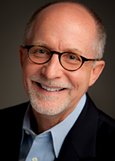Imagine you’re God, and you care about what happens in Anytown, USA. It’s Tuesday evening, and you’re ready for someone in Anytown to request your guidance over the city council meeting.
The mayor calls on the ministerial alliance president to offer the invocation. Then, by mutual consent of everybody from pagans to Presbyterians and Buddhists to Baptists, he begins: “To whom it may concern, … .”
 Editor Marv KnoxIf you’re God, would you bother to listen?
Editor Marv KnoxIf you’re God, would you bother to listen?
Most Americans think so.
I’ve got my doubts.
Fairleigh Dickinson University’s PublicMind survey asked citizens what they think about U.S. Supreme Court cases. Anytown’s scenario parallels Greece v. Galloway. The lawsuit questions whether public government meetings can be opened with specific religious prayers—such as praying in Jesus’ name.
A Jew and an atheist sued the city of Greece, N.Y., which began its meetings with Christian prayers. They claim the practice violates the First Amendment, which bans government establishment of religion. Even when officials invited non-Christians to pray, they still violated the amendment, the plaintiffs contend.
Generic prayer
Greece’s city leaders “were trying their best not to offend anyone by making prayers as generic as possible,” Peter Woolley, political science professor at Farleigh Dickenson, told Religion News Service. “In this survey, we asked if this is an acceptable way to approach the problem.”
Sign up for our weekly edition and get all our headlines in your inbox on Thursdays
The vast majority of Americans agree it is.
Seventy-three percent affirmed, “Prayer at public meetings is fine as long as the public officials are not favoring some beliefs over others,” Woolley reported. Twenty-three percent countered, “Public meetings shouldn’t have any prayers at all, because prayers by definition suggest one belief over another.”
The key to gathering broad-based support is requiring generic—“harmless, if not uplifting”—prayers at public events, Woolley told RNS. “Americans have become more used to the idea that one denomination is not necessarily privileged over another. Even unbelievers—atheists who would say prayer ‘is not for me’—approved.”
Well, of course, atheists approved. They understand generic “To whom it may concern …” prayers aren’t worth protesting. Atheists know they have nothing to fear from faux prayer.
Public support
You’d think Christians would fear watered-down mumbling masquerading as prayer. You’d be wrong. Overt religiosity correlates directly with support for generic public prayer, the survey showed:
• 86 percent of Americans who attend religious services at least once or twice a month favor generic public prayer; 11 percent do not.
• 73 percent of respondents who go to church only a few times a year favor; 26 percent do not.
• 58 percent of those who rarely or never worship support; 36 percent oppose.
Why is this attitude so troubling? Three reasons come to mind …
First, it blasphemes the God we claim to worship.
The prophet Amos spoke for God regarding shallow, showy, meaningless religious practice: “I hate, I despise your religious festivals; your assemblies are a stench to me …” (Amos 5:21).
Second, it undermines true prayer.
Generic prayer weakens our assertion prayer matters. If you agree prayer is so innocuous you can toss it up indiscriminately, you undermine the idea God cares about and/or gets involved in the world. You say prayer is a mere civic formality, devoid of meaning and power.
Third, it’s anti-evangelistic.
Christians often claim they want all people to follow Jesus. But then they either disrespect others’ beliefs and rub their noses in real prayers or pacify their own piosity with generic prayers. Neither approach guides people toward faith.
American civil religion
In fact, generic prayers prop up American civil religion. When religious practices are so placid they appease everyone, they’re practically meaningless. They inoculate unbelievers against true faith.
You know how a vaccine works: Medical staff inject dead or weak disease cells into a person. The cells aren’t strong enough to make the person sick; just strong enough so the person builds up antibodies for the disease. That sounds like civil religion; tepid generic prayer is Exhibit A.
Of course, prayer still has value in our society. Here are solutions to the “To whom it may concern” public-prayer imbroglio:
• Observe a moment of silence at the beginning of public meetings. People of faith may pray. Others can check their email. But real prayers are said.
• Pray privately in the meeting. Pray quietly, with your eyes open. If you value prayer in public meetings, pray without ceasing. But keep it between you and God.
• Pray before you leave home. Jesus advised praying in private. God is smart enough to connect the dots between at-home prayers and divine involvement in society.
• Pray for the community continuously. Nobody will regulate prayer in your church. Make praying for your community a major component of your worship.
















We seek to connect God’s story and God’s people around the world. To learn more about God’s story, click here.
Send comments and feedback to Eric Black, our editor. For comments to be published, please specify “letter to the editor.” Maximum length for publication is 300 words.